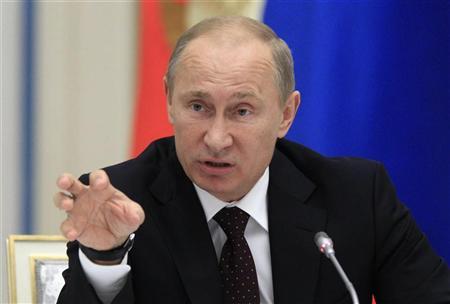Moscow – Russian President Vladimir Putin and President of Kyrgyzstan Almazbek Atambayev had both set the “color revolutions” next to international terrorism on the top of the list of dangers that threaten the stability and security of former Soviet republics.
Given the support of US for the revolutions in Ukraine and Georgia, Russian officials are threatening against “color revolutions.”
The term “color revolutions” is used to describe various public movements against governmental practices. Revolutions against injustice and dictatorship in the Middle East are described as part of the “colored revolutions”
It was crucial to prevent it from moving on to Soviet countries in political situations similar to that of many Arab countries, according to Russian officials.
Putin vowed that Russia will not allow external forces to destabilize its internal politics through protests and violence, and will protect its allies from this threat.
The Russian president told the Mir 24 broadcaster that Moscow is aware of “various theories that are being implemented in different regions of the world, leading to serious destabilization in these regions.”
He added that Russia will try to prevent color revolutions within the country and in the Collective Security Treaty Organization (CSTO) member states.
The Collective Security Treaty was signed in 1992 and the organization itself was set up 10 years later. The CSTO, which is comprised of Armenia, Belarus, Kazakhstan, Kyrgyzstan, Russia, Uzbekistan and Tajikistan, regularly holds military drills on the territories of its member states.
When asked if one was to set a list of threats against CSTO members, Putin said that primarily there would be terrorism and extremism on top, followed by drug trafficking and crimes.
“The effective way to fight against such threats, starting for us, is to join efforts. We proposed to join efforts on the global scale. You do know that I voiced this proposal addressing the United Nations. In any case, considering the regional scale, we are capable of it (fighting threats) and as it had been proved, we are capable of doing it quite effectively,” the Russian leader stated.
“We know various theories that are being implemented in various parts of the world and lead to serious instability in these regions. Of course we must not allow anything of this sort and we will by all means take appropriate actions in Russia and support our partners in the CSTO,” Putin told the Mir TV channel.
Similarly, President of Kyrgyzstan Almazbek Atambayev believes that these revolutions are US meddling in other countries’ affairs.
“We are still witnessing attempts by the West to impose some kind of their own rules and values without taking into account the mentality of the people and nature of societies and without considering the level of development reached by that country,” said Atambayev.
President of Kyrgyzstan added that an intervention will lead to a situation similar to the one seen today in Iraq, Syria and Libya.
President Atambayev hoped that the new US administration would continue with the Trump’s plan which called against intervention in other states’ affairs.
Atambayev believes that if the US committed to that idea, the threats against the CST would be less.
“Russia is vitally interested in the stability on the post-Soviet area,” Putin said, adding that: “the less the number of threats emerging from various directions on Russia, the more our joint actions are effective – the better.”
The Russian president reiterated the importance of ending corruption adding that certain political parties are taking advantage of that to create chaos in the country especially that they are close to elections.
The desire to stop the Arab Spring revolutions was one of the reasons that led to the formation of the Russian stance on the Syrian crisis.
Earlier, Russian Minister of Defense Sergei Shoygu said that Russian troops’ interference in Syria, helped in the geo-political solution by stopping the series of color revolutions that invaded the Middle East and North Africa. During a session held by the Moscow State Institute of International Relations, Shoygu accused the Arab Spring of using violence as a primary method to achieve its goals.
